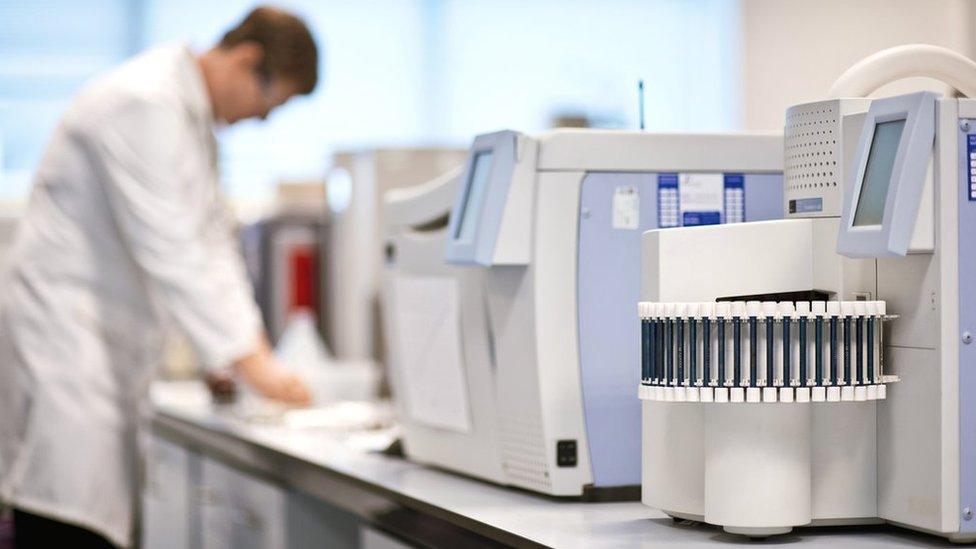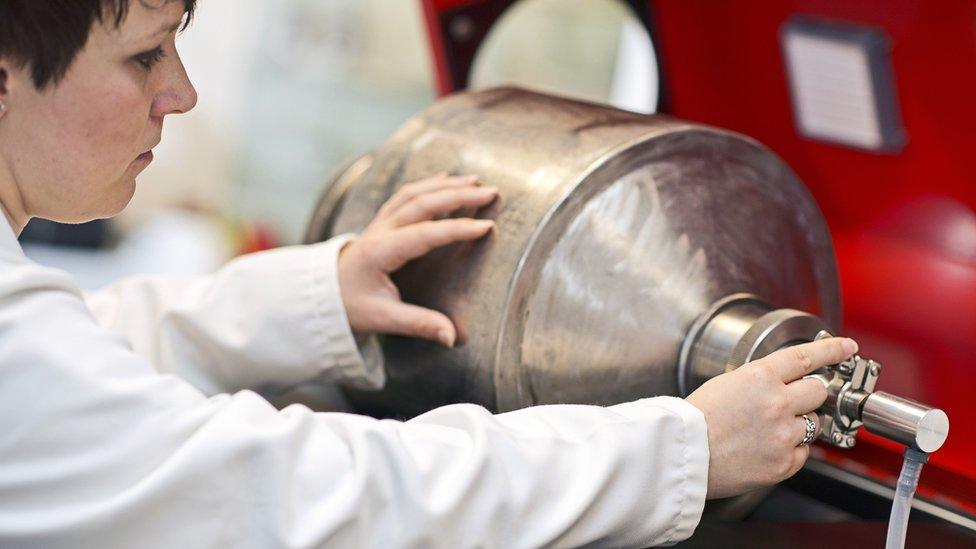Science leaders make investment case
- Published

Leaders of the UK's science community have made a robust pitch to have the nation's research budget raised.
Royal Society President Sir Paul Nurse said Britain needed a vibrant knowledge economy and the way to achieve that was to invest more in the nation's acknowledged science excellence.
Public R&D spend as a percentage of GDP currently stands at 0.49 - one of the lowest figures among advanced nations.
Sir Paul said ministers should lift this to 0.67% during this parliament.
This would bring spending into line with the OECD average.
"Increasing the spend by the amount we're saying would be an increase of 0.03% to 0.04% each year, and that's got to be in the accounting error of the Treasury's calculations," he told reporters.
"So, I suppose my argument is that this is a very effective way to drive our country's economy because the sums are relatively small, we're extremely good at science, we can attract inward investment and attract spending from private companies."
The Royal Society president was speaking at a briefing at London's Science Media Centre.
His and colleagues' pitch is deemed necessary because the Chancellor George Osborne is about to bring forward a Comprehensive Spending Review, which will set government expenditure levels over the next few years.
During the last parliament, Mr Osborne largely protected science from the cuts he instigated elsewhere in government.
He ring-fenced and fixed the public day-to-day spend on research at £4.6bn per year.
And although he slashed capital investment (spending on labs and other infrastructure) early in the parliament, he did eventually return much of that money and committed to index-link future capital investment through the end of the decade.
But science leaders say the "flat cash" settlement under which they have been operating has put them in a "logjam".

Value has been eroded because of inflation and room for manoeuvre in the management of different scientific disciplines has become severely limited.
"We have high-quality research that the Research Councils have been trying to keep going with shrinking budgets because of inflation. We are losing the agility we need to respond to new developments and we will now start to be really damaged," Sir Paul stated.
The Royal Academy of Engineering published a new report on Tuesday on the state of innovation, external in the country.
The UK tends to score highly on the global indexes that measure how knowledge developed by scientists is turned into the added value of new products and services - in large part by engineers.
This was evidenced, said the RAEng's Dr Hayaatun Sillem, by the multipliers that public investments in innovation were achieving: "Every £1 of public R&D funding gives rise to an increase in private funding of up to £1.60; and Innovate UK (Britain's innovation agency) achieves an average of £6 of economic value-added for every £1 invested."
Dr Rebecca Lumsden spoke for the Association of the British Pharmaceutical Industry.
Although this very successful industry benefits from a relatively small public R&D spend, this money still contributed to an ecosystem that was able to leverage more than £11m a day of private inward investment into the sector from abroad, the ABPI policy director said.
"We're a high value, high productivity sector. We employ 70,000 people with a GVA (Gross Value Added) of £149,000 per person. We are a massively highly skilled sector, but we rely on public R&D to maintain our high skills base, our high knowledge base, and to ensure the [£11m a day] comes here into the UK rather than into other countries that are also investing quite heavily into R&D."
Jonathan.Amos-INTERNET@bbc.co.uk, external and follow me on Twitter: @BBCAmos, external